When my wife, Emily, was 21 weeks pregnant, we went in for our 2nd scan at Queen’s Hospital in Burton. So far, the baby had been growing well. The placenta was full of fluid and, other than the cord not quite being central, there were no alarm bells. We had heard the heartbeat, felt the kicks – it was all great! We’d had a test at the 12-week scan to see if there was a chance of our baby having Down’s Syndrome. The results were 1 in 850 – at those odds, we were pretty sure it wouldn’t happen!
After the scan we thought all had gone well. There was nothing to suggest that there were any major medical issues. All of our baby’s limbs, fingers and toes were accounted for. The heart was beating strongly and no obstructions could be found. The only slight issue was with our baby’s long bones. Their femur was in the 2nd percentile, 2.8th percentile to be exact.
For the benefit of those that don’t know, the percentile rating is an average. If you had 100 people lined up in height then number 1 would be the shortest and number 100 would be the tallest. Making number 50 the average. The sonographer is looking for a baby to be above the 3rd percentile so as to be deemed medically sound. To think about that is a bit mad. Our baby skirted the wrong side of that edge by the merest of margins. If the sonographer had not picked it up, we wouldn’t have known about their diagnosis until after her, rather traumatic, birth a few months later.
Everything Started to Change
Emily was cut up by the news. She wondered if there was something she had done wrong, or if there was a risk to our baby’s life. Naturally for a mother, she panicked and was scared and stressed. I did my best to be the rock. The stoic man who allows everyone else to lean on them whilst the world crumbles at his feet. That’s our role isn’t it most of the time – to be there and be strong?
Of course, inside I was in turmoil. We were given limited information because the medical team did not want to diagnose our baby with anything without the full facts. We were told to carry on as normal until we all knew more. My head was all over the place, and I felt like I had a boulder sitting on my chest.
We were told that we would be moved from the clinic at Burton to Fetal Medicine Department at Royal Derby for further checks. They didn’t have an appointment for a couple of weeks, and we had a summer holiday booked. We spent a week or so trying to relax in Portugal with family. Trying our best not to dwell on what the next scan may have in store for us. We tried to ignore it – we have medical professionals in the family: midwives and NICU nurses. They tried to settle our nerves with their knowledge and reassurances – but we always had those niggling doubts, they never quite settled.
More Tests…
We returned from our trip and went to Royal Derby for our appointment. We were 23 weeks into the pregnancy at this point. The little squiggly thing in my wife’s belly had their own personality. They enjoyed my wife eating chocolate. They did tumbles and rolls, and liked listening to Linger by The Cranberries. It meant that any news that wasn’t good news would be fairly devastating. And devastating it was. Our baby’s long bones had moved from bordering the 3rd percentile to the very bottom end of the 1st percentile in a matter of weeks. There were no other exhibitors of medical issues – again the heart was strong, the baby was moving and the placenta was doing its job. Other than a severe bout of heartburn, Emily had no issues either.
We couldn’t understand what had happened: why was our baby not growing? Likewise, the consultant wasn’t sure either – she initially thought that our baby had a form of dwarfism. No other signs of Down’s Syndrome were seen on the scans at this point. But the consultant was unsure and we needed extra tests. She was certain, however, that the issue was chromosomal. They advised to have an amniocentesis. A procedure that requires a long needle to go through the mother’s belly and into the placenta to withdraw amniotic fluid. It’s a simple enough procedure, but requires that baby to be still (easier said than done). And it runs a risk of miscarriage of about 1 in 200, or 0.5%. We asked the team to leave us alone to decide.
Deciding What To Do Next
Emily and I discussed everything together. I tried to stay very matter of fact. I find it best to deal with what I know rather than the emotion attached. Should we risk the miscarriage for the test? Should we consider an abortion? The cut off for a “healthy” baby would be at 24 weeks and would have to be done soon.
What if it was something like Down’s Syndrome, or Patau syndrome, or Edward’s syndrome? What would we do? How would we cope? Needless to say, we were overwhelmed. Emily cried, but that’s not my bag. I don’t cry much, possibly a handful over the last 20 years or so. I tend to be angry and fidgety, angsty is probably the right word. But, like I have mentioned, I try to deal with facts, and I persuaded Emily that we should have the amniocentesis on the day. The more we knew, the better. Emily underwent the procedure, and thankfully it went well. We just had to wait 5 long days for the results..
The Diagnosis Was Down’s Syndrome
When the call came through, the walls came tumbling down. The diagnosis was Down’s Syndrome. We were told to go back into Fetal Medicine the next day to talk to the consultant. Emily cried, I held her. I cried, she held me. We mourned for the baby we had created in our heads, a little life that had never truly existed. Emily blamed herself. While I searched in my head for someone else to blame – if it was genetic where did it come from? There was no evidence on either side of the family of any genetic or chromosomal disorders. So what had happened and why?
I fell into a pit of guilt and shame and anger. I sometimes skirt around the edges of that pit, but those occasions are becoming rarer now. Emily still blames herself from time-to-time. But it is no-one’s fault. Trisonomy-21, our particular brand of Down’s Syndrome, is something that just happens. If it wasn’t for the number of failed pregnancies and abortions undertaken with this diagnosis at hand, the number of people with T21 in society would be far greater than it actually is.
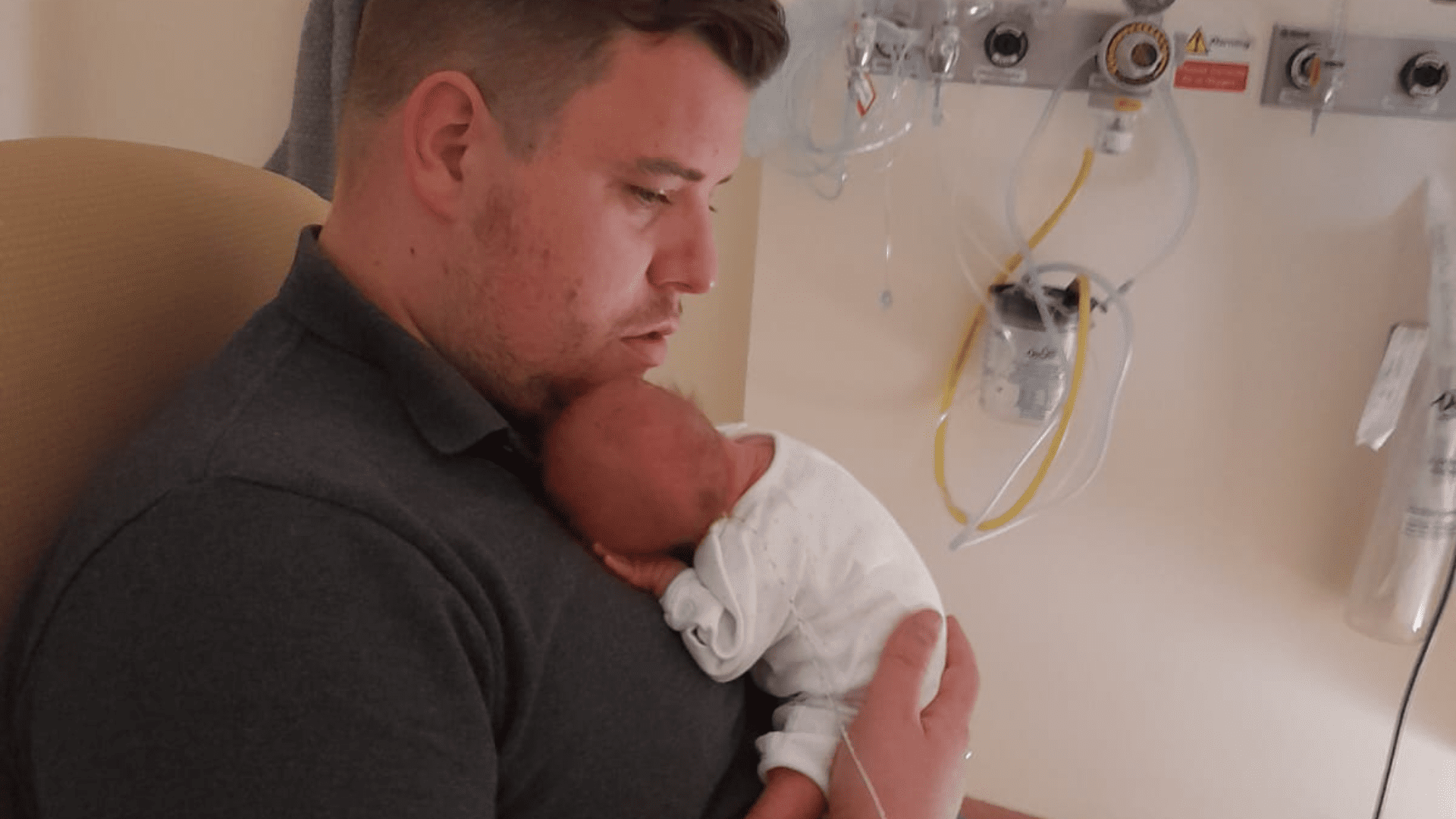
The consultant said that we were unlikely to miscarry now as we were so far along. But we still had the option of an abortion if we wanted to. The formal diagnosis allowed Emily to have an abortion until full-term. What a maddening thought that is! That you can terminate a life of someone with Down’s Syndrome later in pregnancy simply because they have a slight difference. Not that I begrudge anyone having an abortion, each circumstance is its own and who am I to judge? We decided, together, that this baby was our baby. We’d raise them with as much care and love as any other parent would for any other child. We left the hospital and did some research through PADS and the DSA, before continuing the pregnancy as normal.
Something Was Going Wrong
Fast-forward to Saturday 15th October 2022. England are playing Samoa in the opening fixture of the Rugby League World Cup! I had been waiting for this for ages! I was on the sofa, beer in hand, in my boxers and slippers. Ready to just enjoy some world class rugby.
Cue Emily, holding her bump and looking worried, coming in from baking a cake for her friend’s baby shower. She says she hasn’t really felt the baby move much in the last day or so and she doesn’t know what to do. Emily had been admitted for tests two days earlier. There were concerns about her well-being. We had only got out of hospital on the Friday because they were happy that both baby and mum were well enough. They had said that should any concerns arise, we should call up the unit and come in if told. So that’s what we did (I clothed myself first in fairness). Emily was admitted for more tests on her and the baby. I watched the game on my phone using the dodgy Wi-fi connection all hospitals seem to have.
After an hour, they weren’t happy with the test or the lack of movement, so they decided to run it again. Emily was begging for some heartburn relief, but there were no doctors about to prescribe it. So as they were running the hour-long test again I went to go and buy her some. None in the pharmacy, none in the Aldi over the road. The nearest reasonable shop is a Boots about a mile away.
So, I jumped in the car and drive over. Stopping in at a Greggs on the way to get two cold sausage rolls and a steak bake. I bought some Rennie and Gaviscon, and tucked into my tea – it was roughly 6.30pm and I noticed I had a missed call off Emily. I called her back. No answer. And again. Still nothing. I’m not overly concerned at this point, I’d only been out for 20 minutes.
“Get Ready To Be A Dad”
The phone blared and it is Emily, finally, and I open the call with, “Eh up. Want anything from Greggs?” But the reply isn’t from Emily, it’s from a nurse.
“Sorry, is that Jack? Mr Conlon?”
“Yeah errr hi, who’s this?”
“Hi, I’m a member of the nursing team. I was just wondering if you could come back to the ward please? Nothing major and don’t worry! But the quicker the better.”
“Yeah, sure, course!” I say, mouth full of steak bake and the car already reversing out of the car park.
I drove back to the hospital, got into the car park and met the nurse. But not at Fetal Medicine, but at the door to the Labour Ward. As we walked down the corridor, the nurse explained that the consultant on call wanted our baby out now. Emily was being prepped for surgery. She was in shock and emotional and was asking for me. The nurse told me to get ready to be a dad. I’m surprised my head didn’t fall off! Walking into Fetal Medicine earlier, I’d had very few concerns. Leaving the Labour Ward a few hours later, I was a dad.
Our Beautiful Baby Girl Was Born
Dorothy Theresa was born at 19.51 on 15th October, via elective caesarean. She was 3 pounds and 5 ounces, 41 centimetres long, and as she was only inside for 31 weeks and 6 days, she was over 8 weeks early. I had called around family and in-laws prior to the operation, and bumped into my parents in the corridor as they carted Dot in her incubator from the ward and into the NICU. I cried into my dad’s shoulder and hugged my mum, called the in-laws, to tell them the news, and went into the NICU to see Dot.
We spent 3 weeks in the NICU in Derby, before moving to Queen’s Hospital in Burton for a further stay of 2 weeks and 5 days. We were allowed to take Dot home on 24th November 2022. She had oxygen to support her lung development and growth. The doctors took Dot off her oxygen following successive sleep studies in January. She has had two short stints in hospital since, once for an adverse reaction to vaccines, and once for illness related to her lungs and the slight hole in her heart she had from birth.
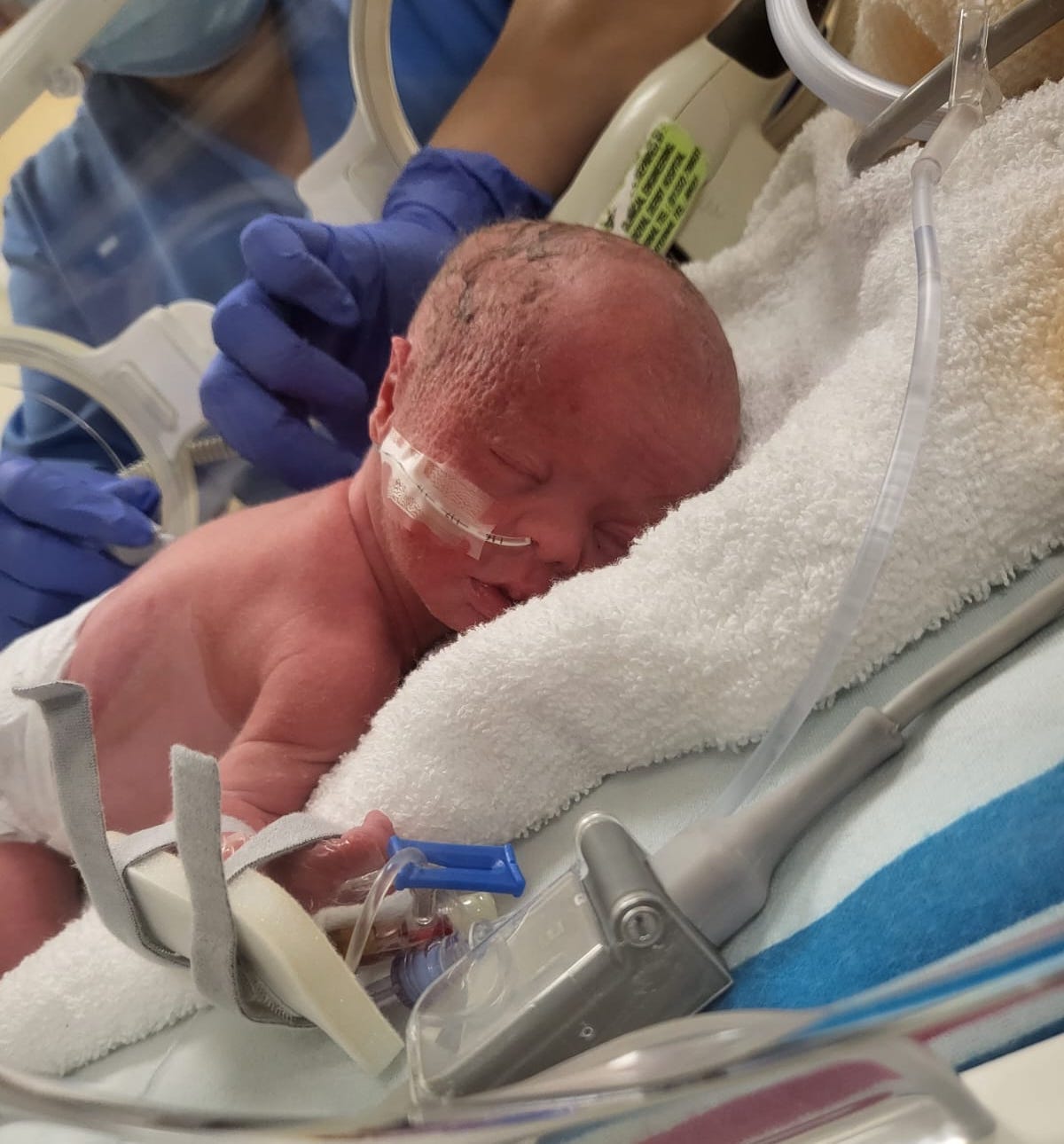
They were scary nights, but part and parcel of the path we have chosen to follow. Emily initially tried to breastfeed, but ended up expressing and bottle feeding as Dot never quite got the latch. She is now on formula and feeds well. At her last weigh in she was nearing 10lbs!
What Do I Want To Say To Other Dads Of Babies With Down’s Syndrome?
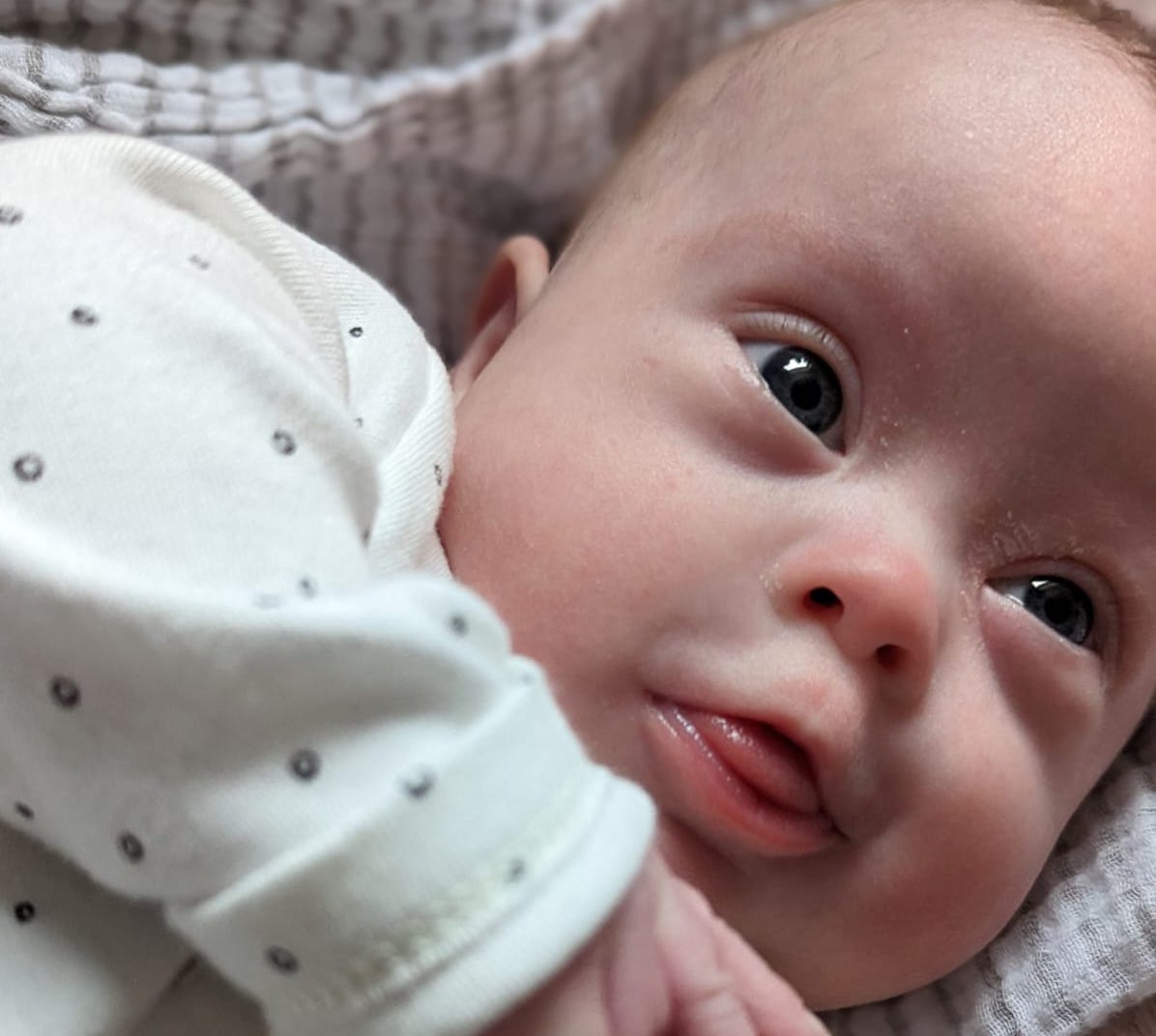
Dot is everything you would expect from a baby. She laughs now, and smiles. She isn’t much of a crier, but she lets us know what’s what. Dot poops (a lot), wees, burps and vomits like any other baby. She has started cooing and babbling, she loves lights and this painting we have on the living room wall. She has play dates with other babies, cuddles with her grandparents, aunts and uncles. Even Dot’s 3-year-old cousin adores her and treats her delicately and with love.
We couldn’t love her anymore if we tried.
And I suppose that is what I would tell anyone looking for advice or whatever from a tale such as mine. Dot is my baby and I love her, as you will love yours. And, ultimately, isn’t that enough?
Do I worry about the future? Sure! But what Dad doesn’t? I worry about how Dot will get on in school. About her relationships growing up, I worry if Dot will ever be married or have kids. I think about how she will turn out intellectually, Whether she will like sport, if she will watch football or rugby with me. What hobbies will she have, will she like me and her mum. How I will provide for her, how will she cope as an adult, and on and on and on into infinity. But each of those concerns are the concern of a parent, not the exclusive concern of a parent with Down’s Syndrome.
For now, I am enjoying being a dad. I think I’m pretty good at it to be honest, never perfect but no one ever is. Apart from Dot of course. She always will be.
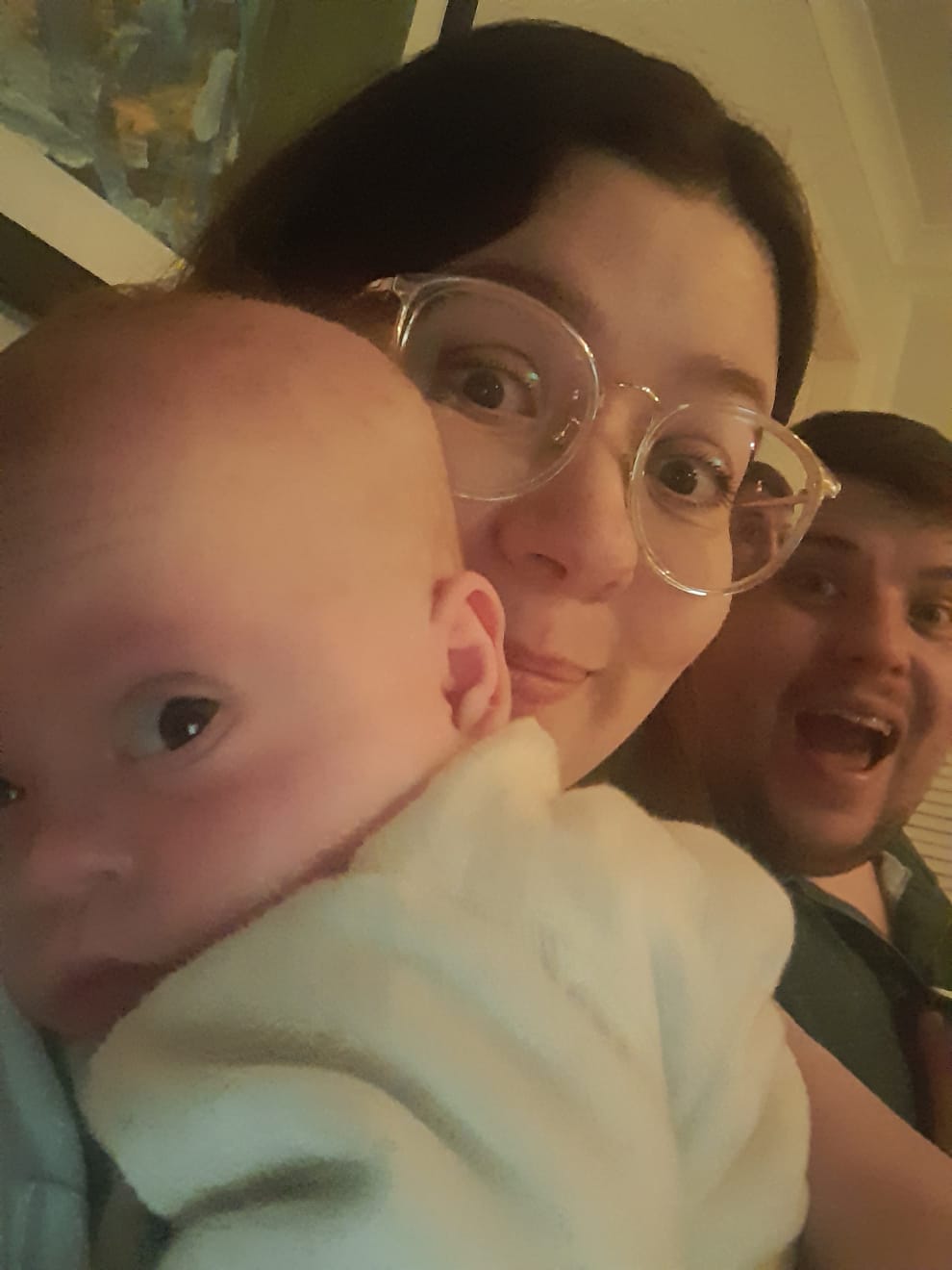
Looking For More Support As A Dad Of A Child With Down’s Syndrome?
Our friends at Down Syndrome UK have loads of resources for parents of a child with Down’s Syndrome. You can also find them on Instagram and Facebook.
As a dad looking for parenting support, we can tell you why it’s so important to have a good parent community to support dads. And you can find loads of great resources across our site. We have a whole section for New Dads and our award nominated Dadvengers Podcast features lots of dads sharing their stories. You’re bound to find something to help you!


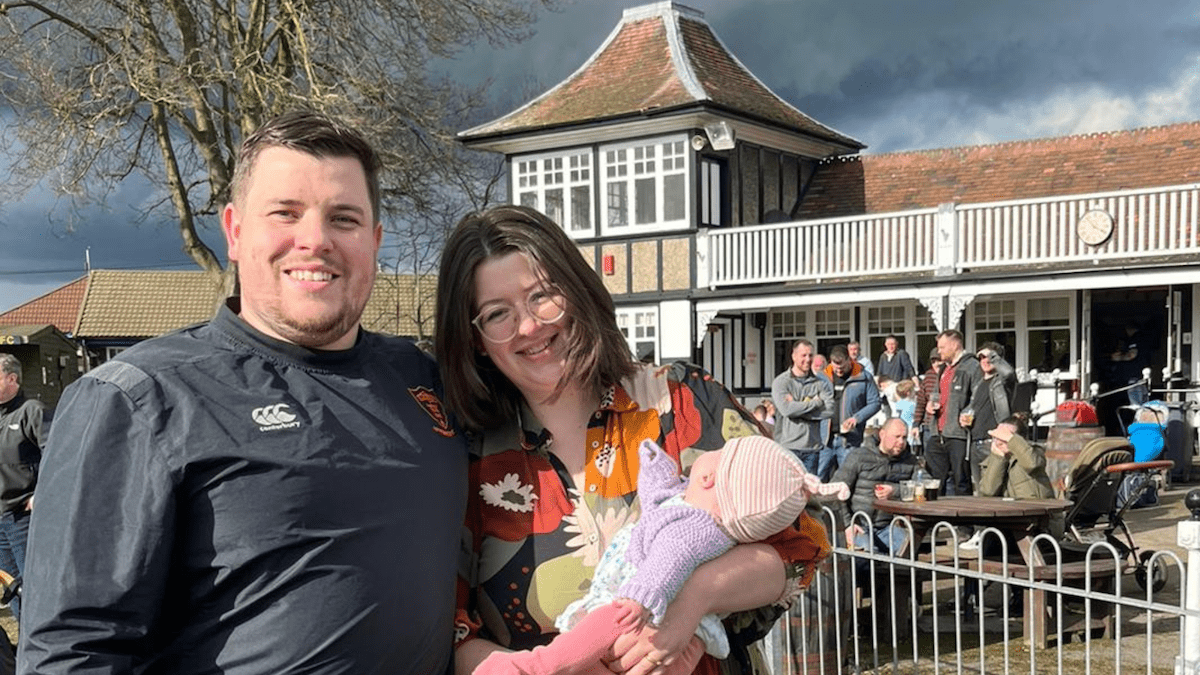
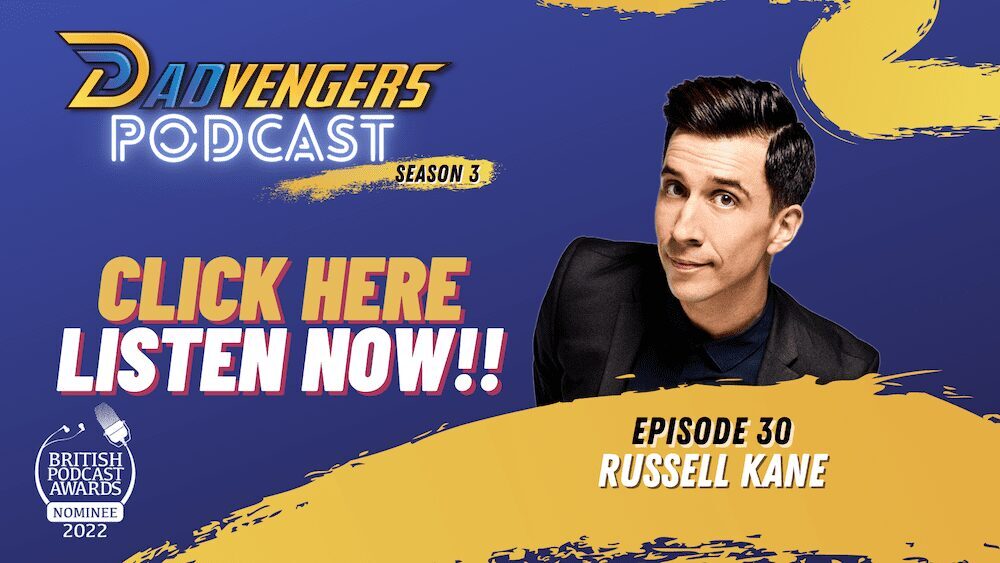
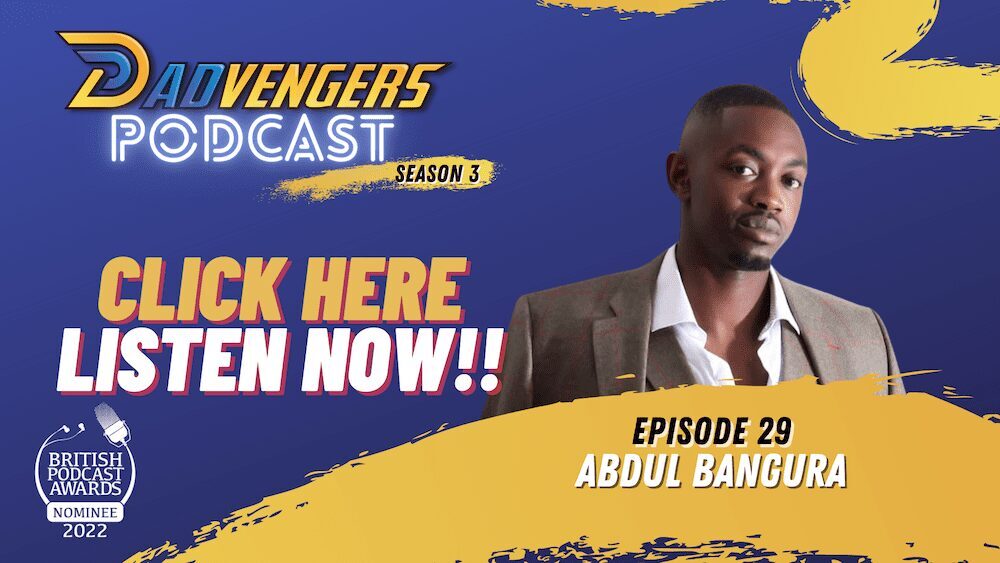
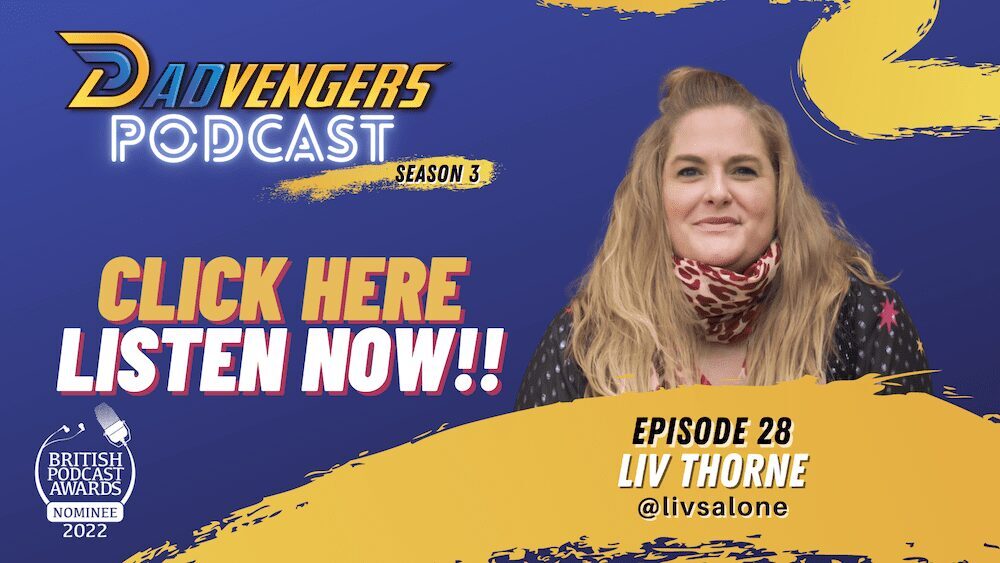
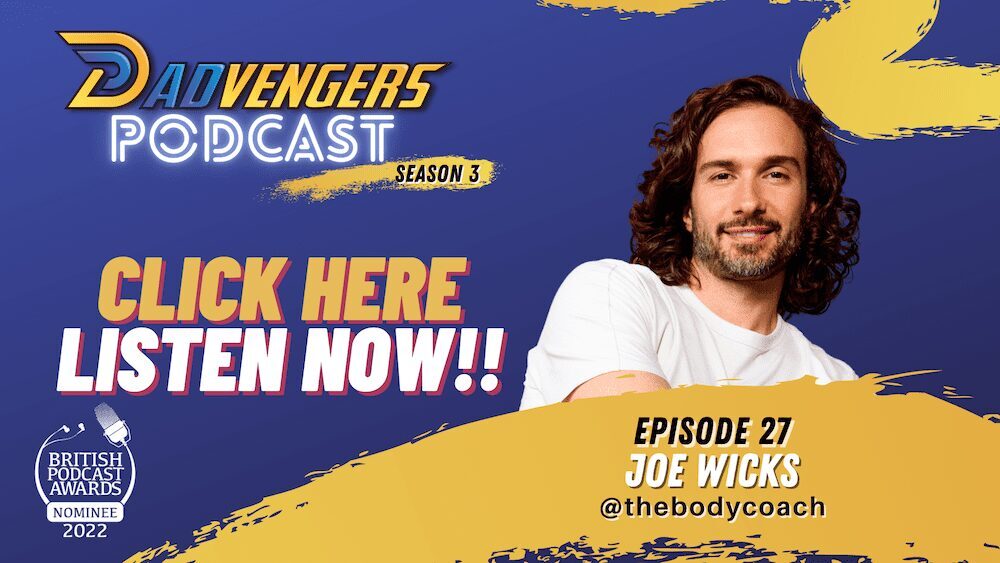
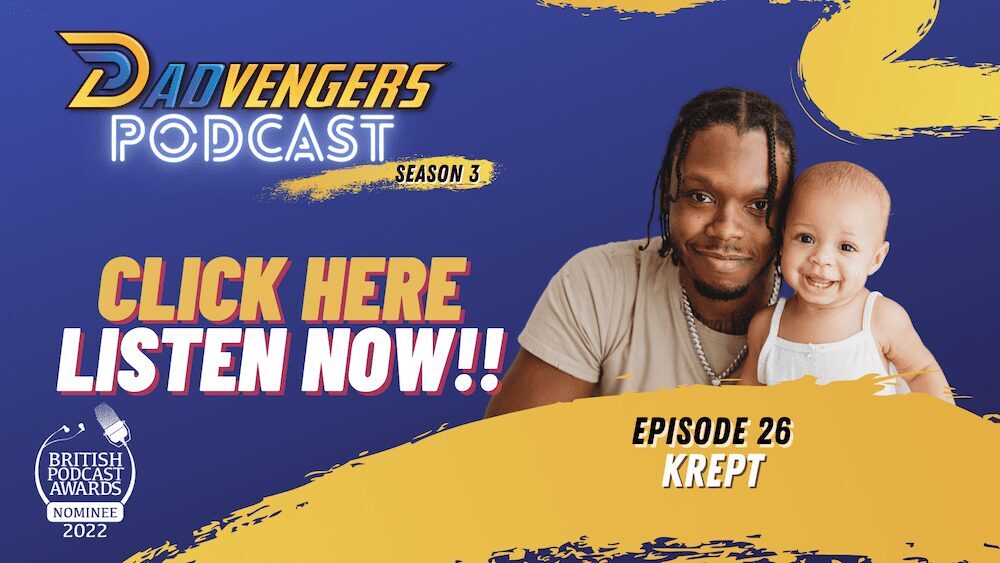
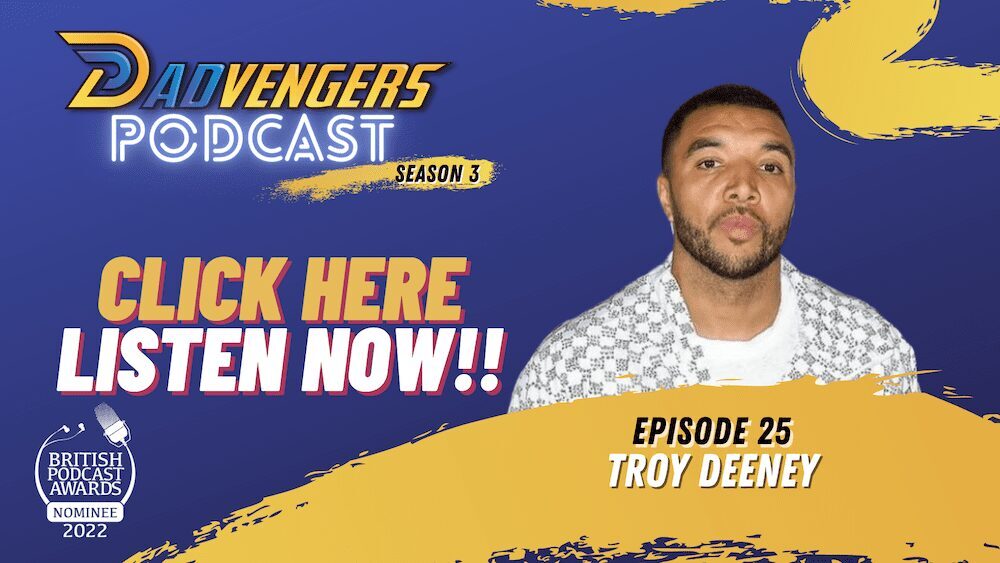
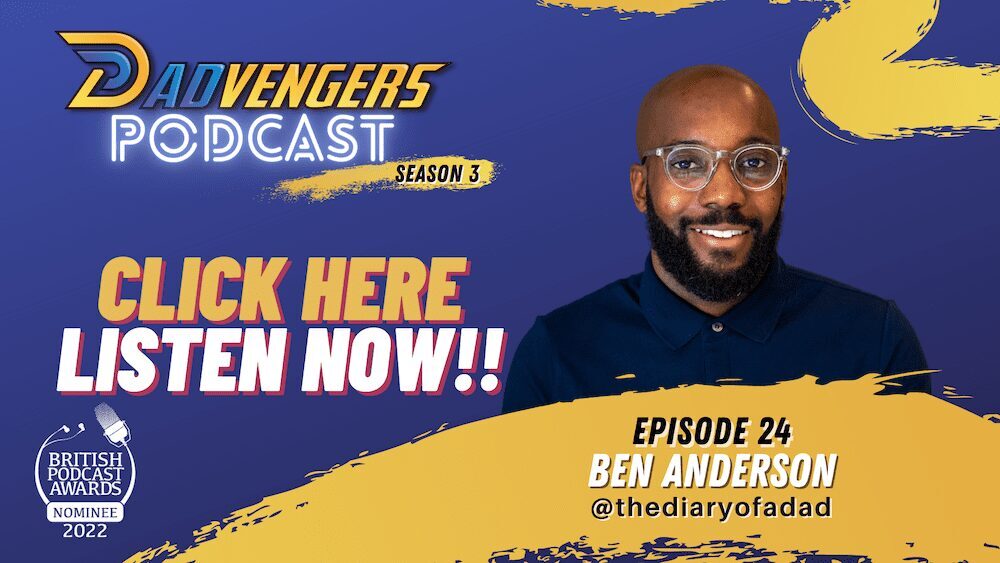
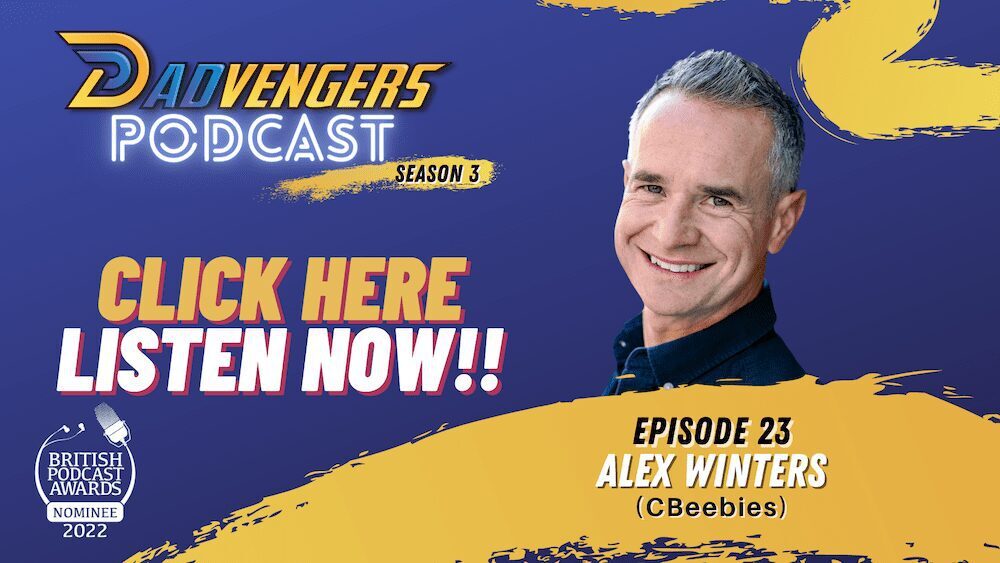
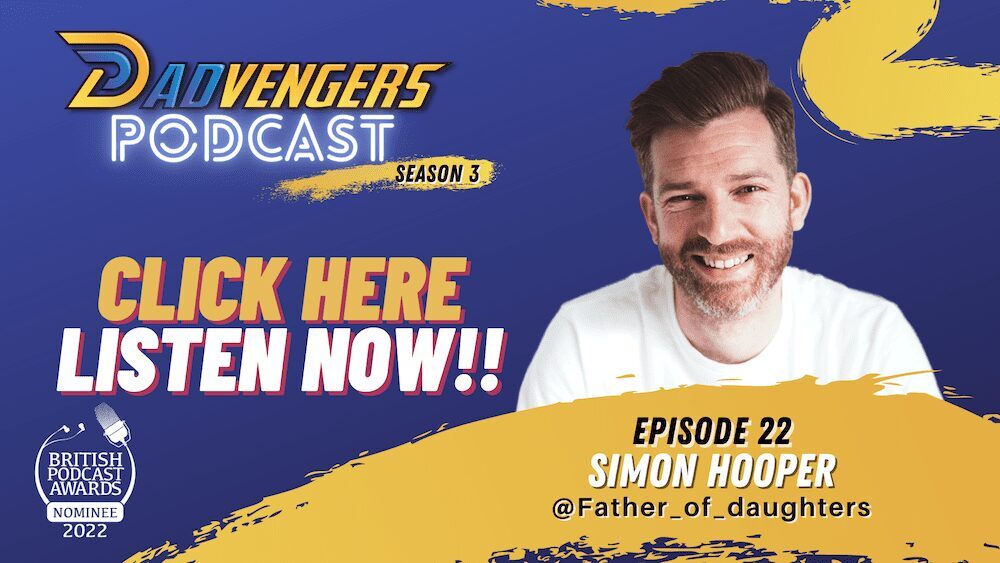
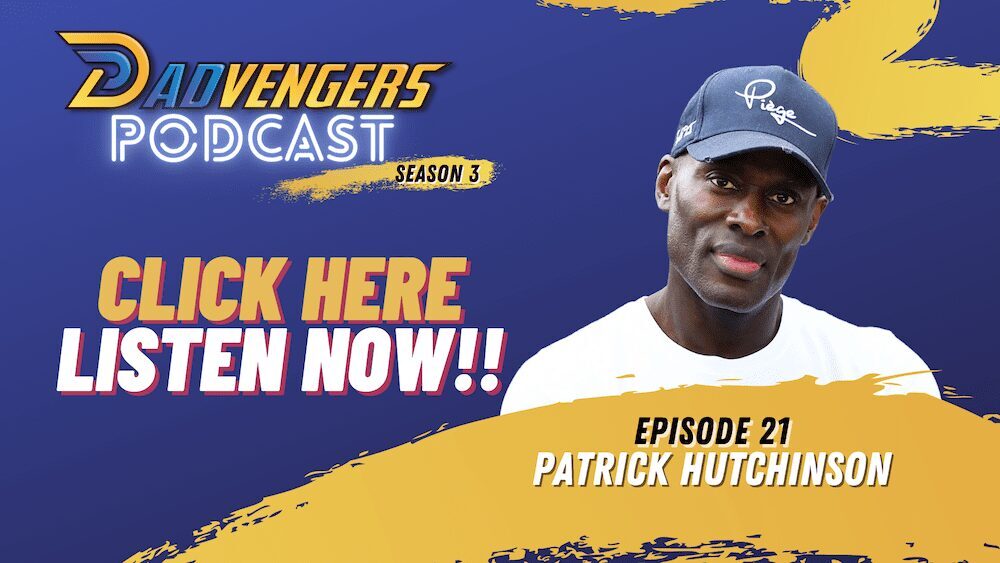
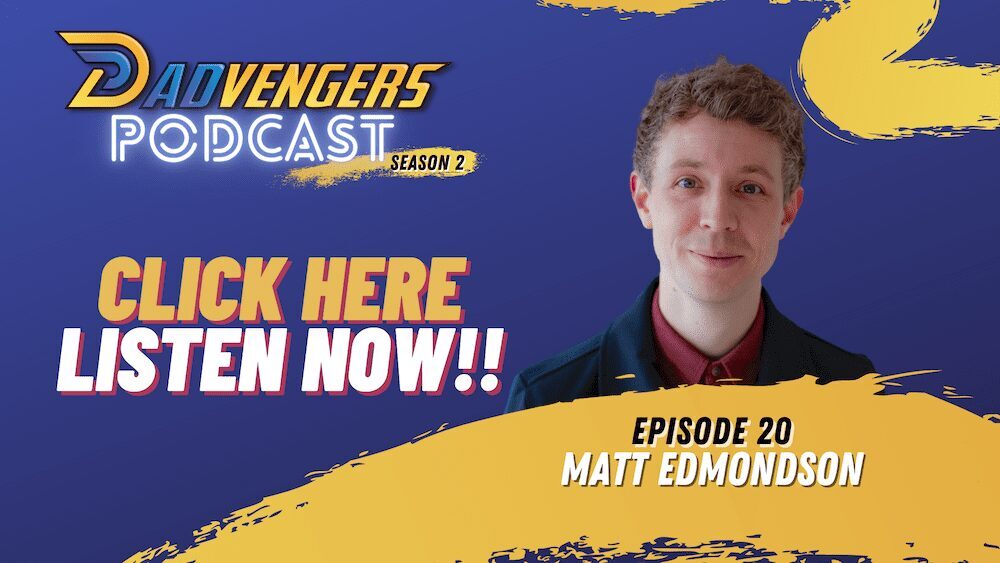
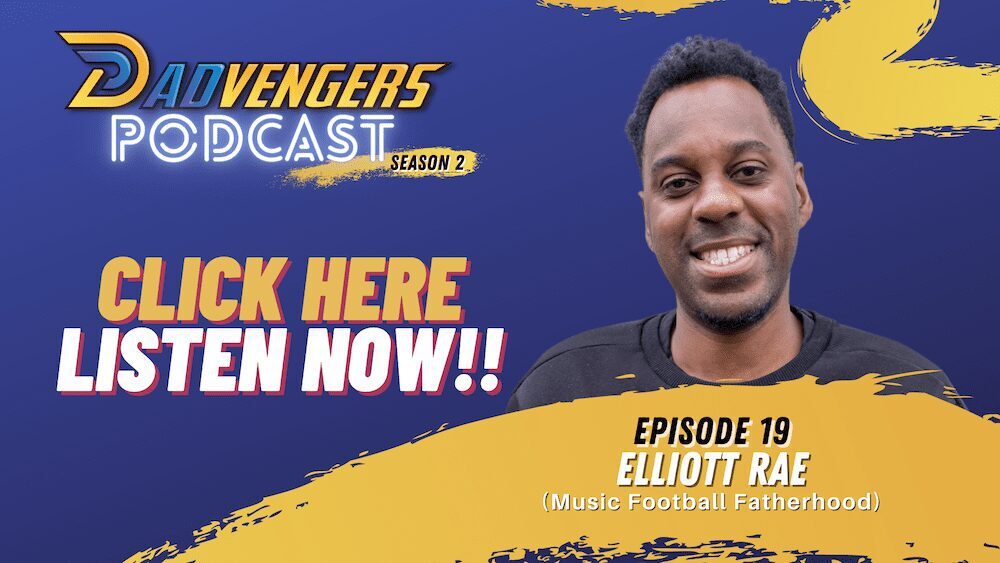

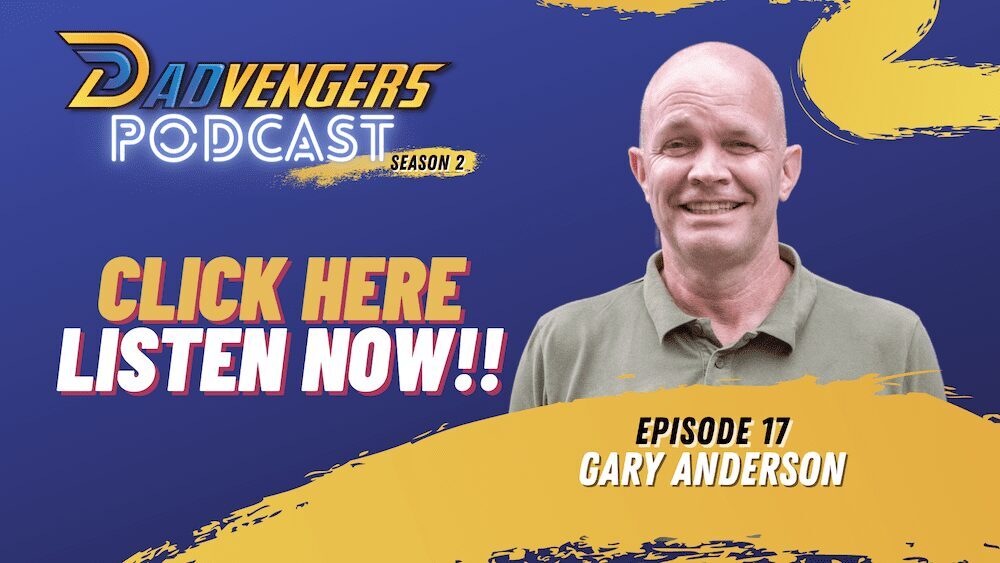
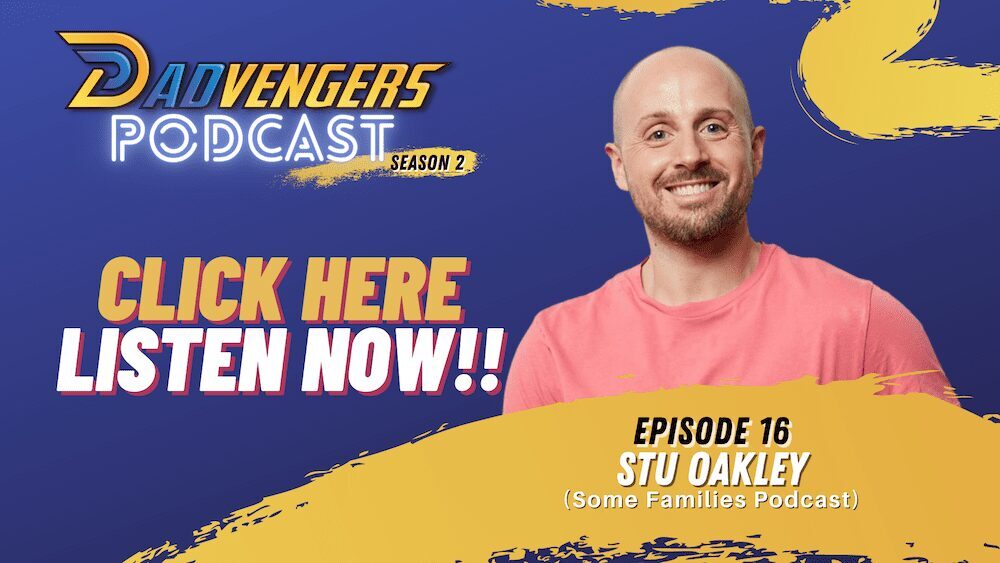

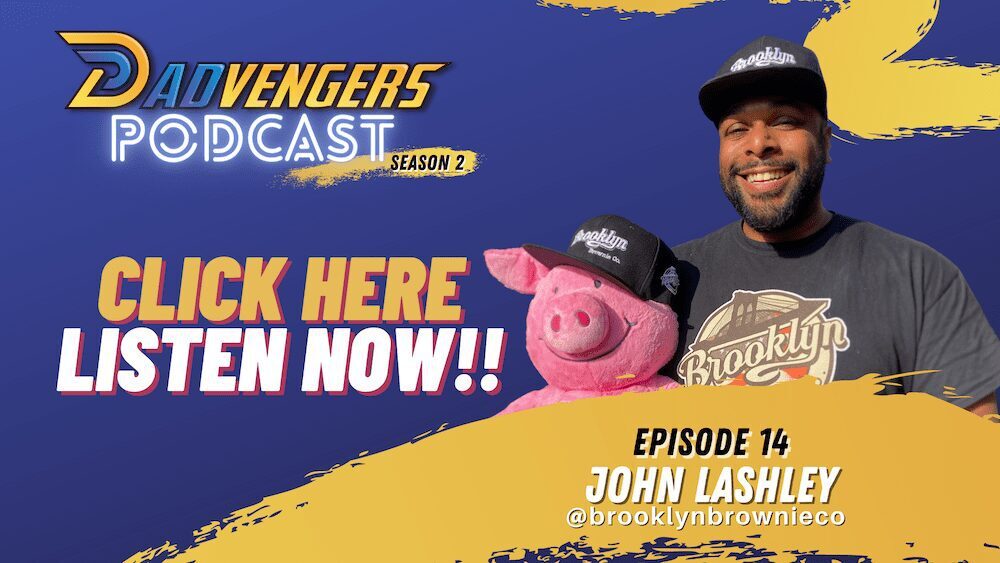
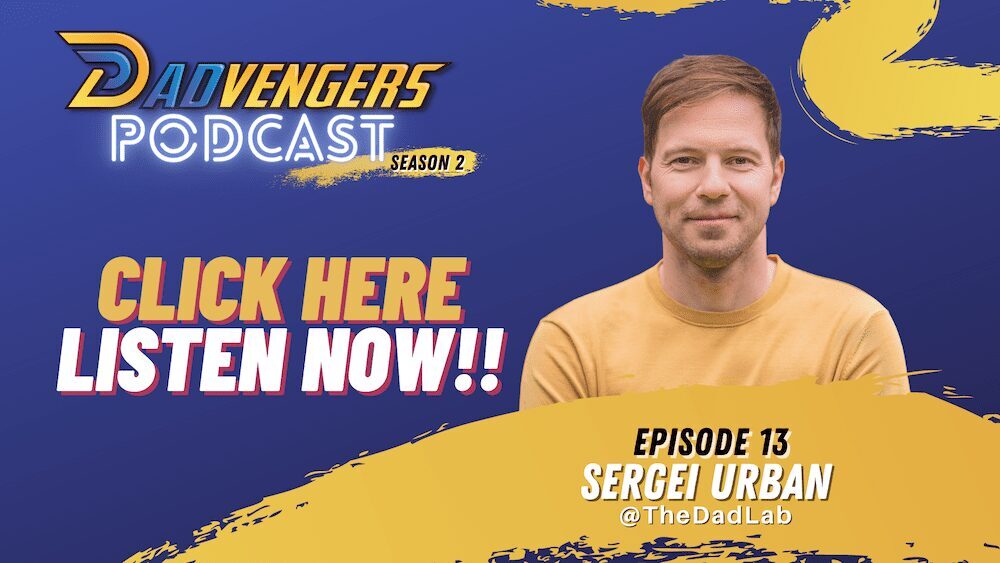
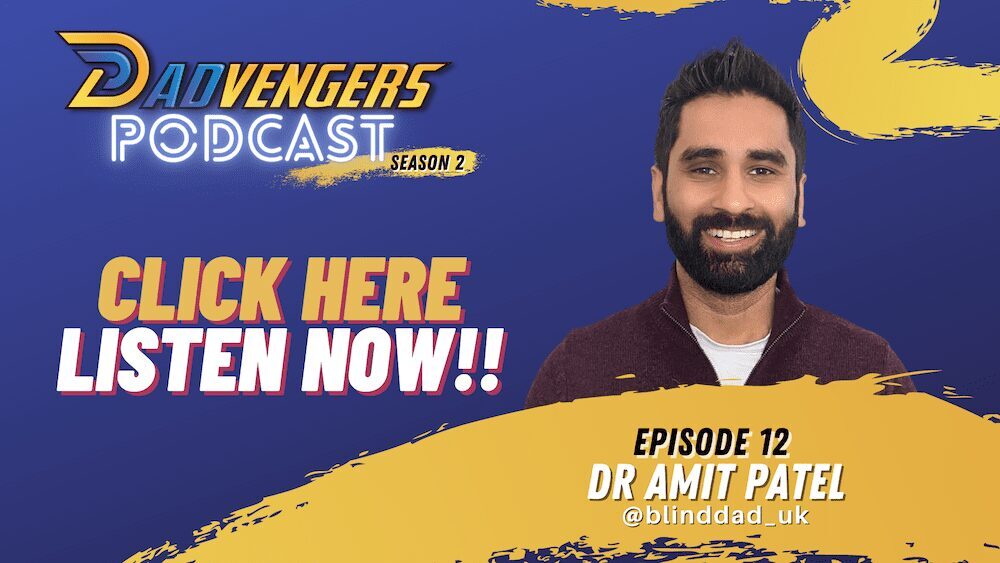
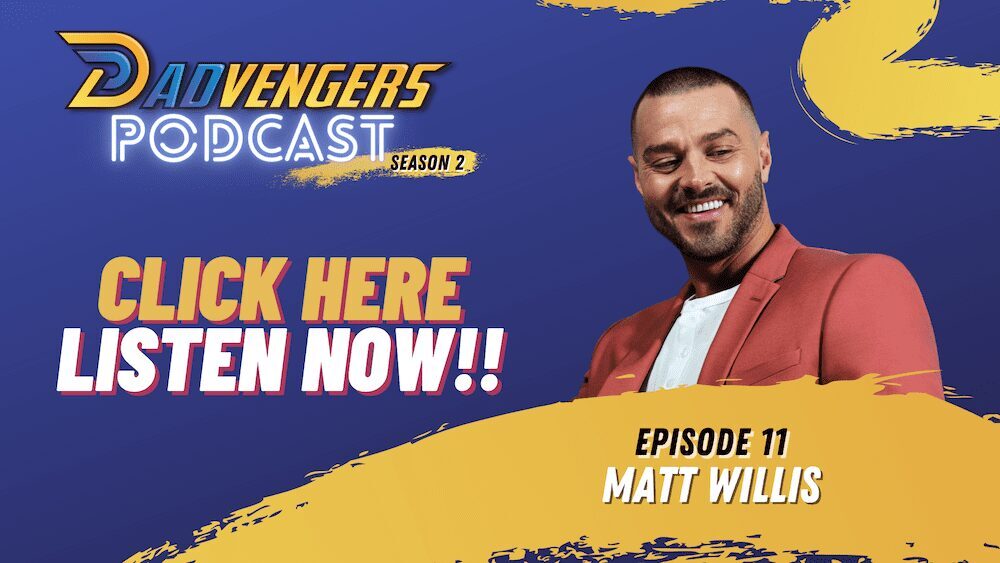
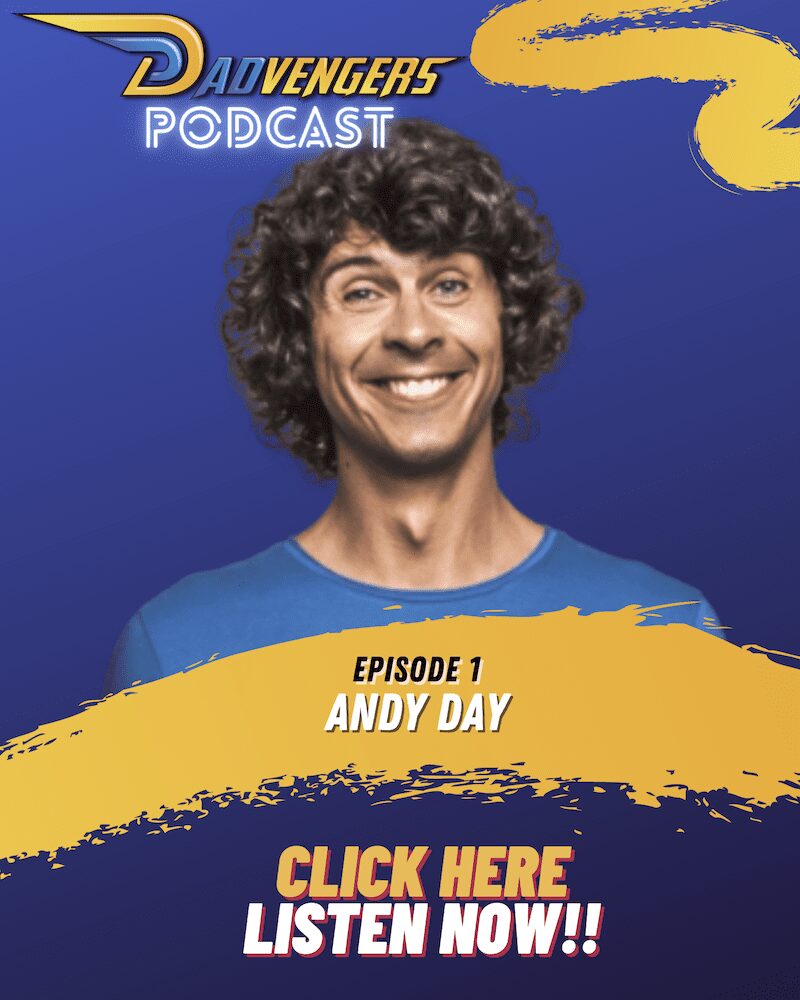
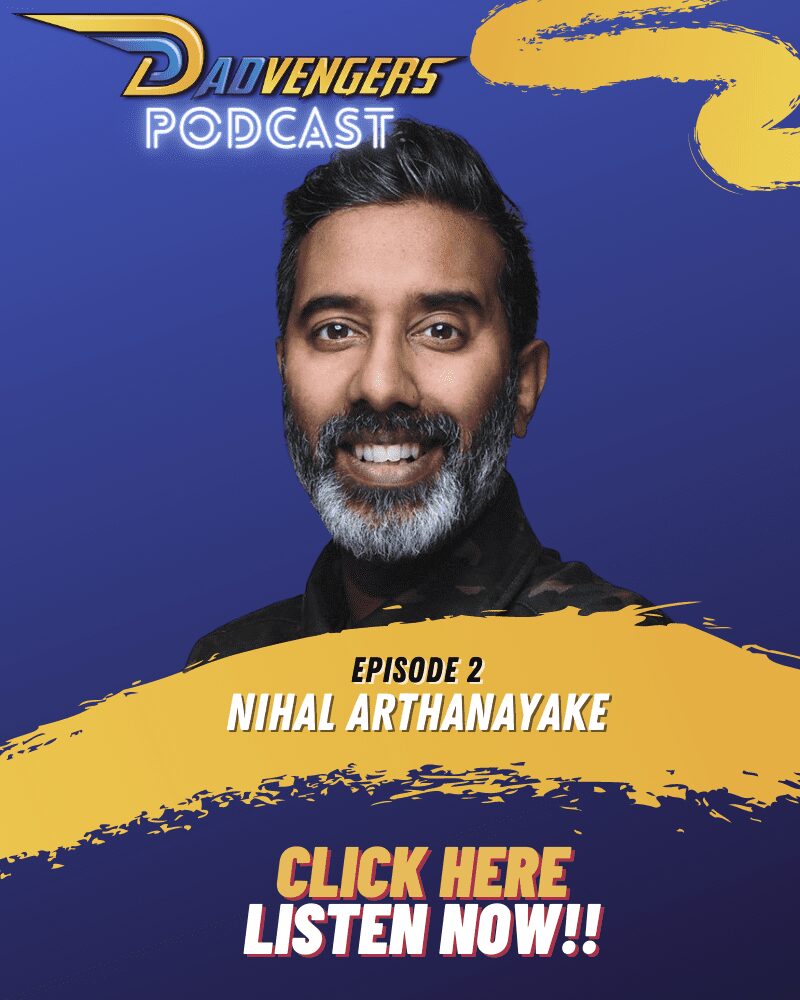
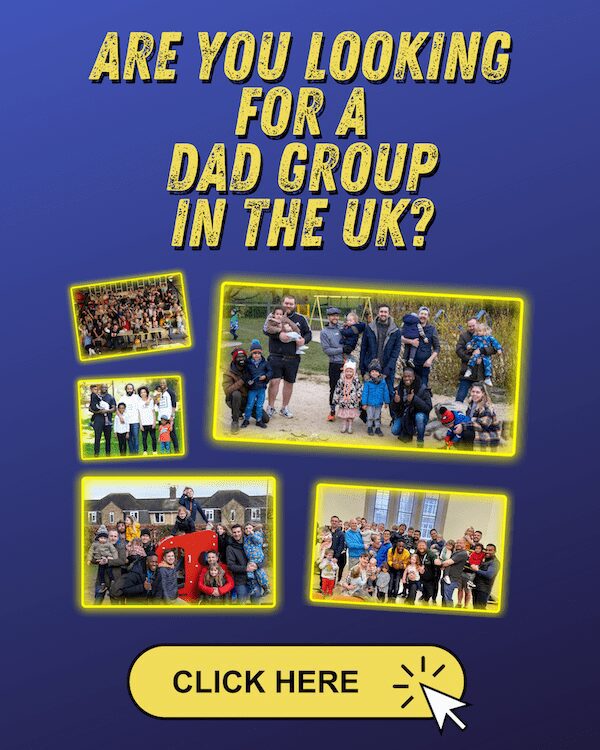
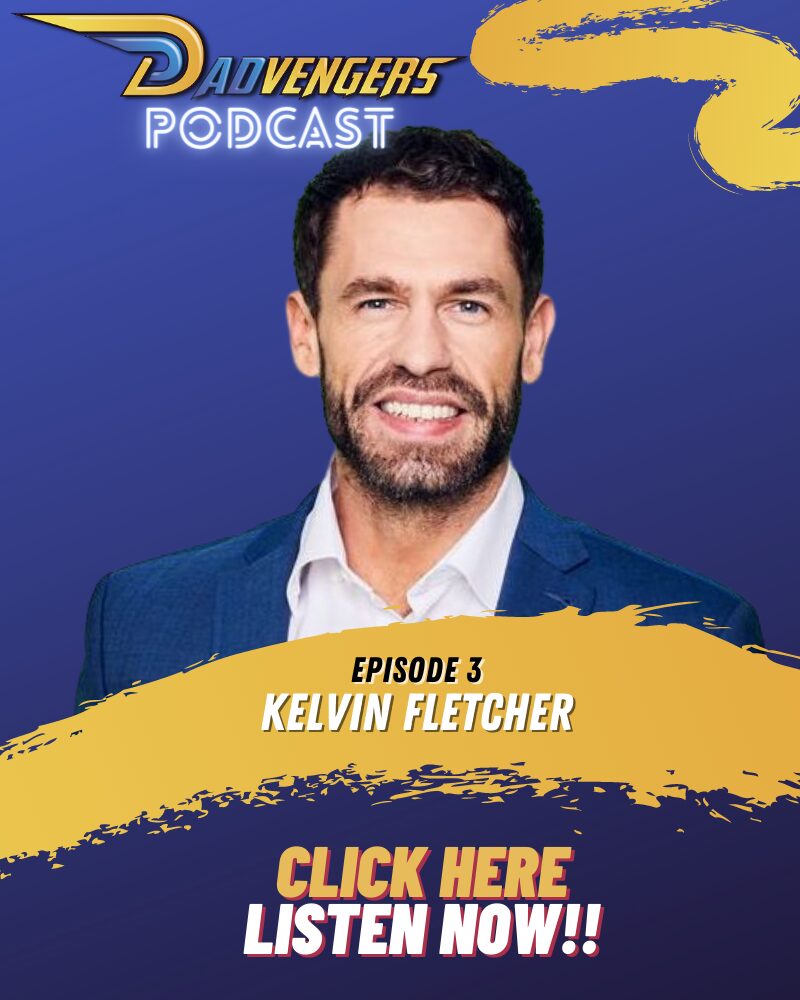
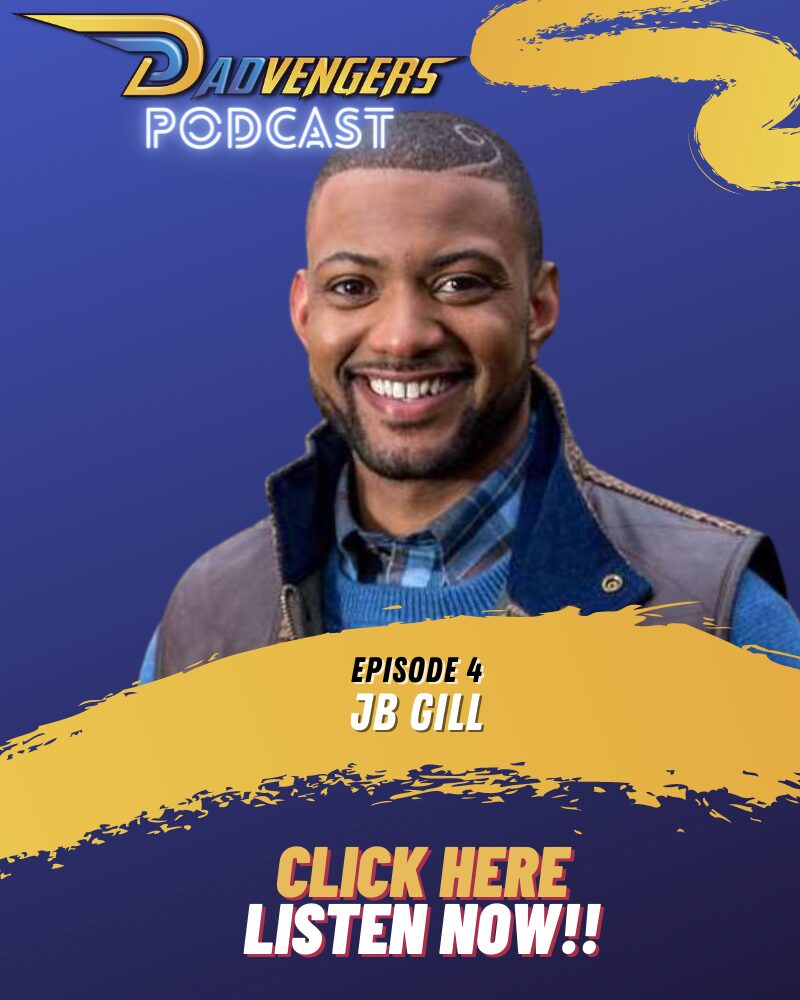
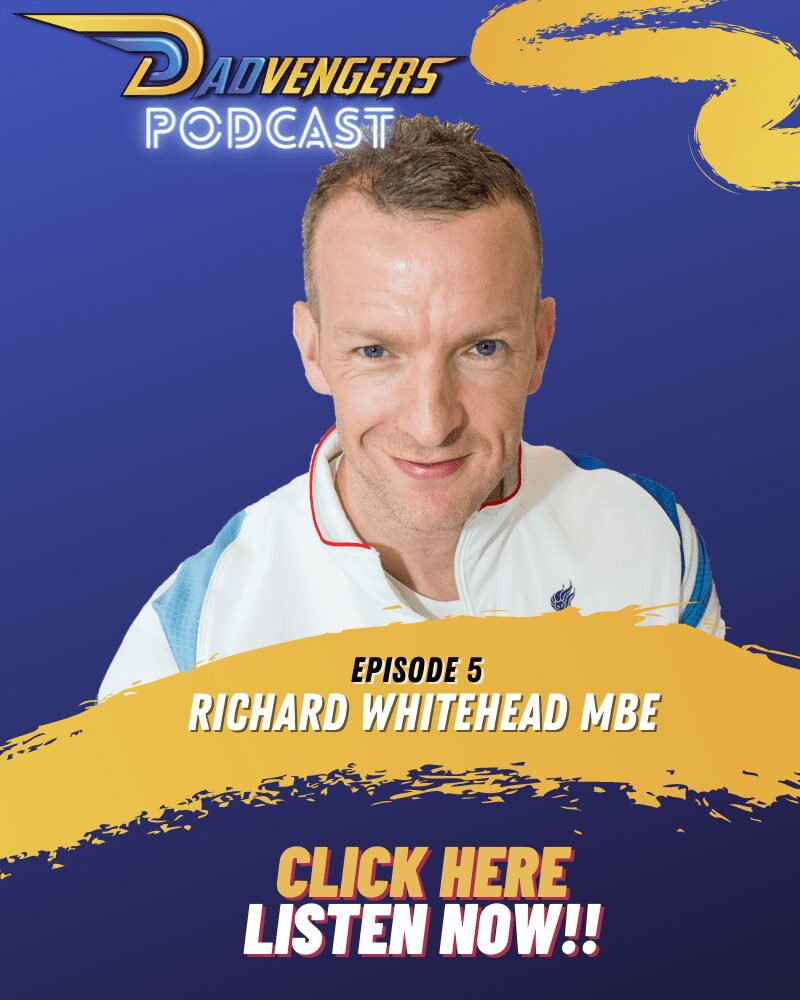
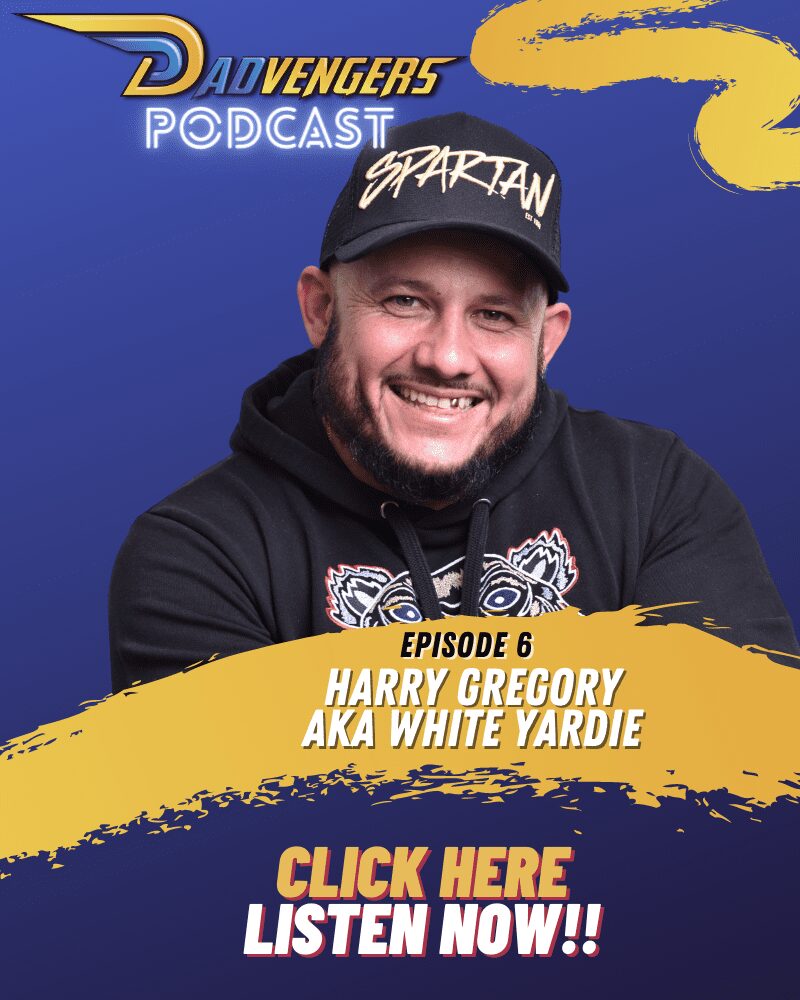
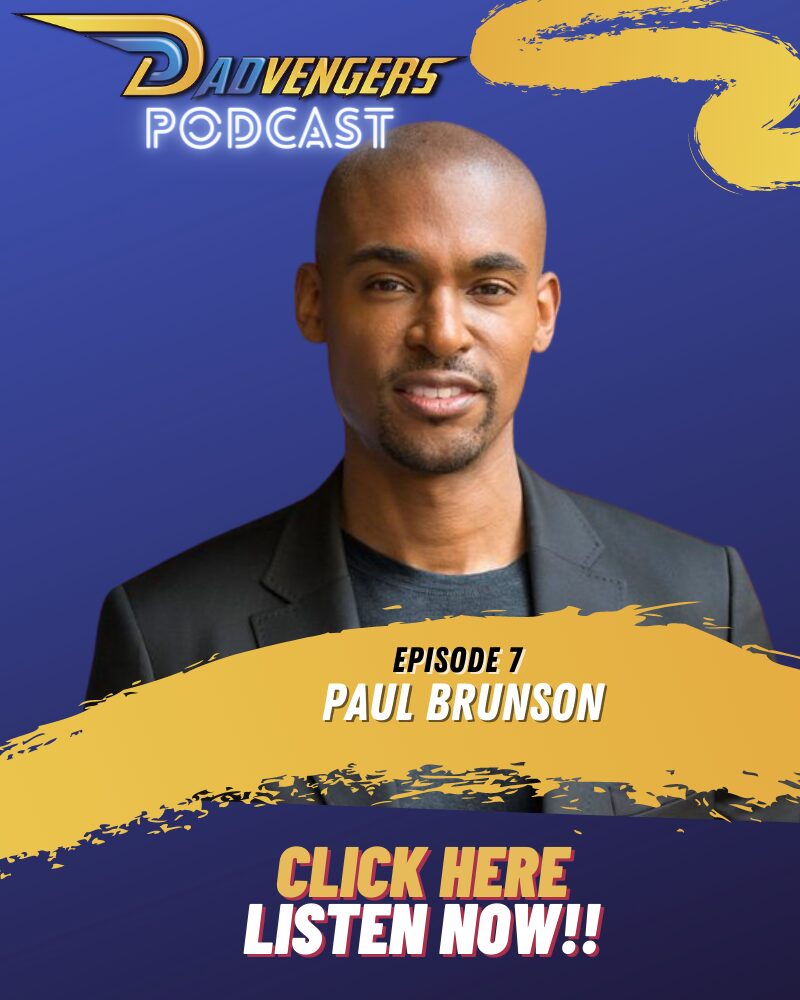
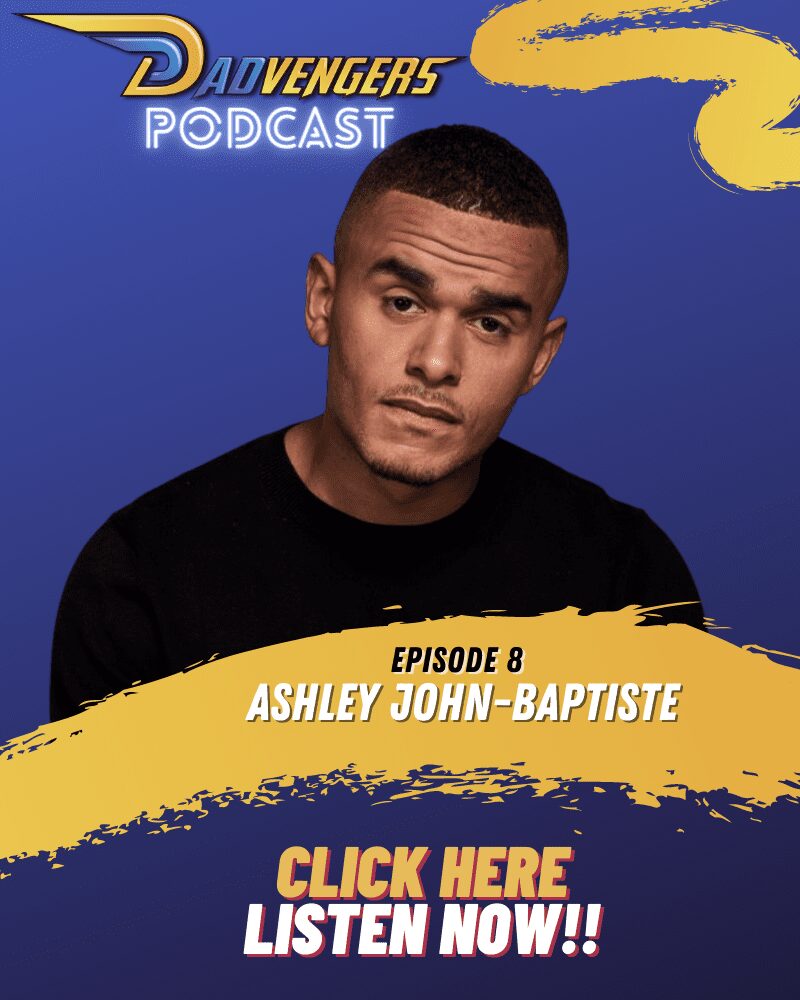
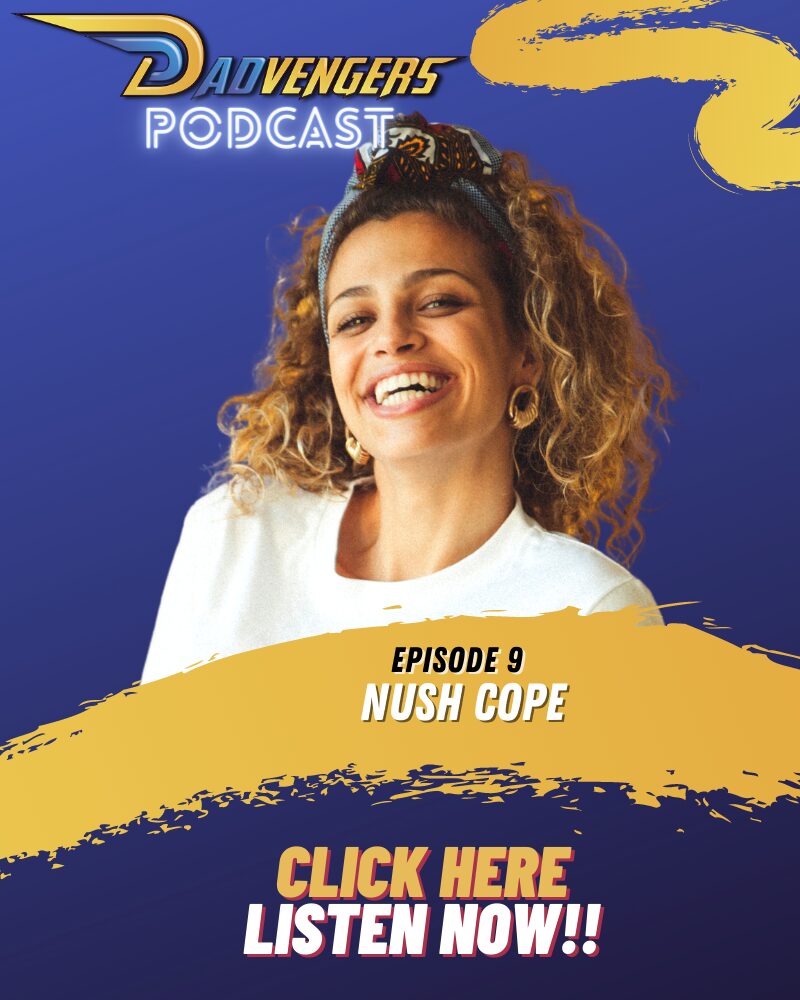
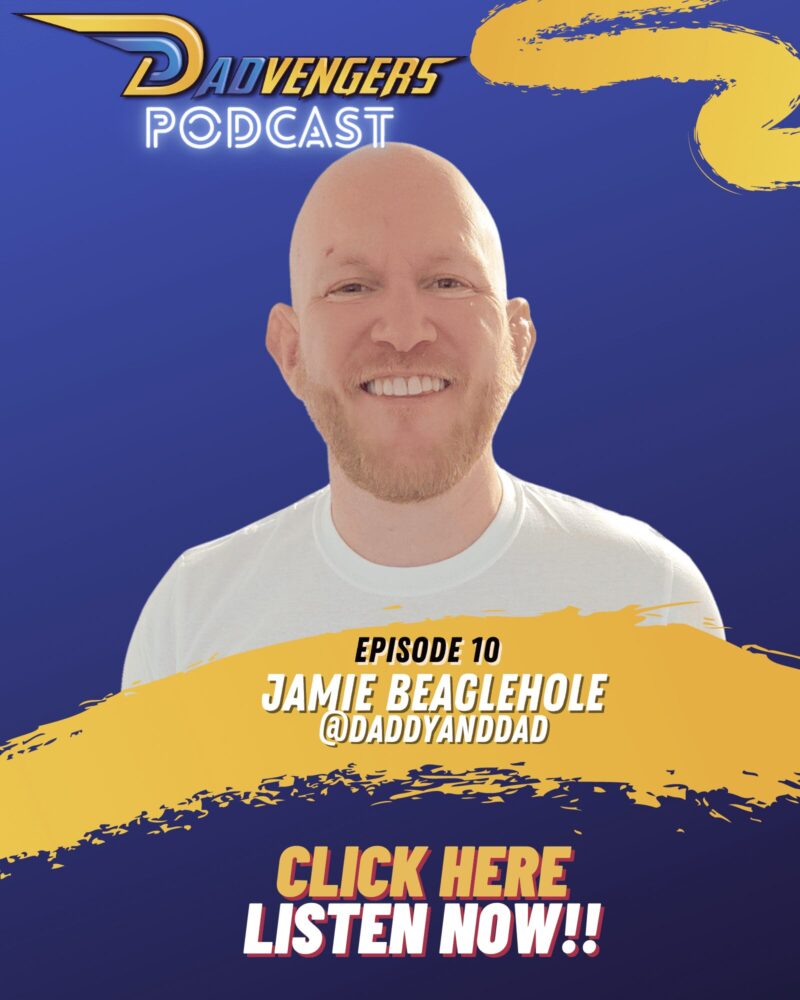
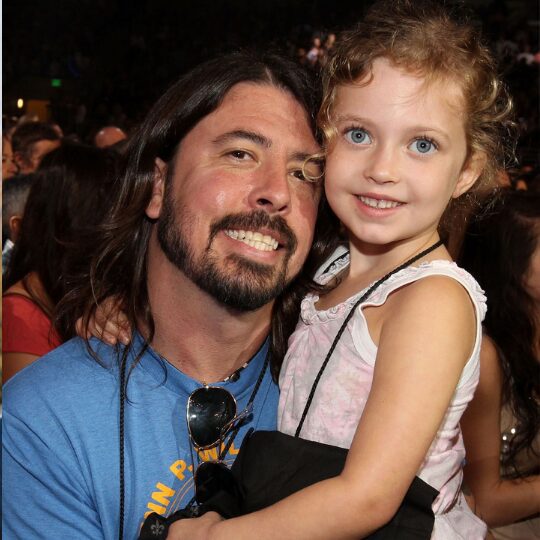

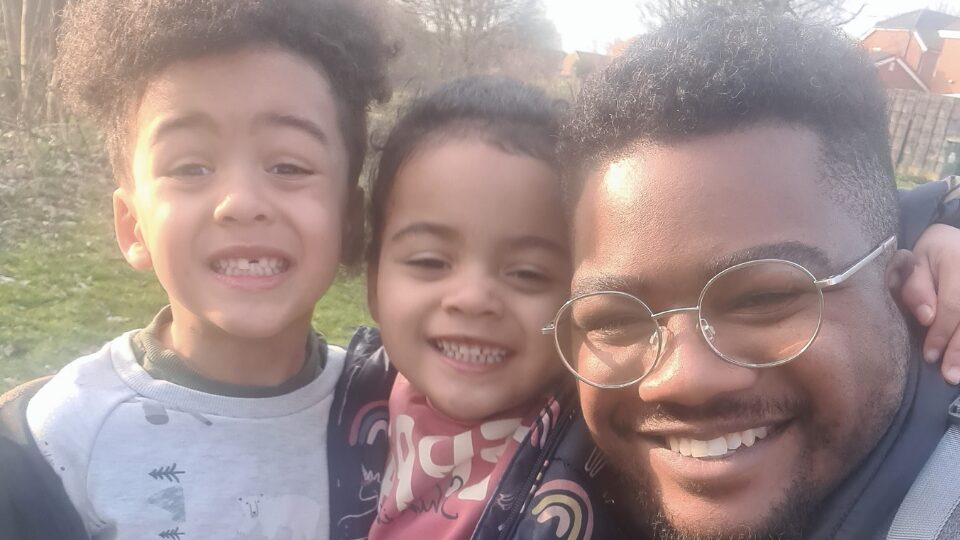
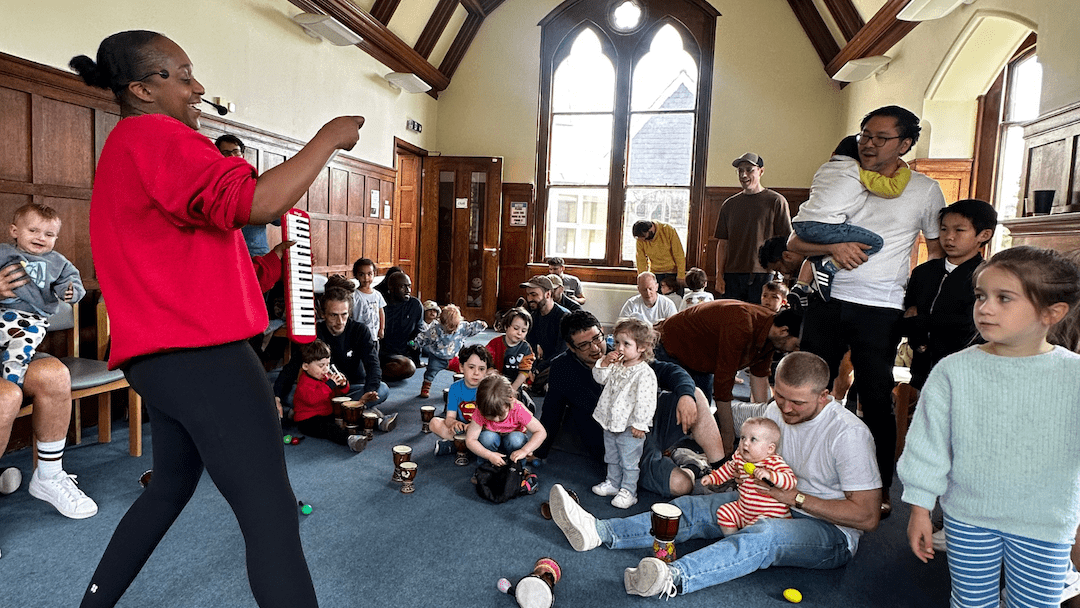
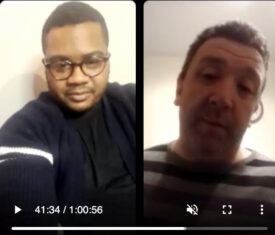
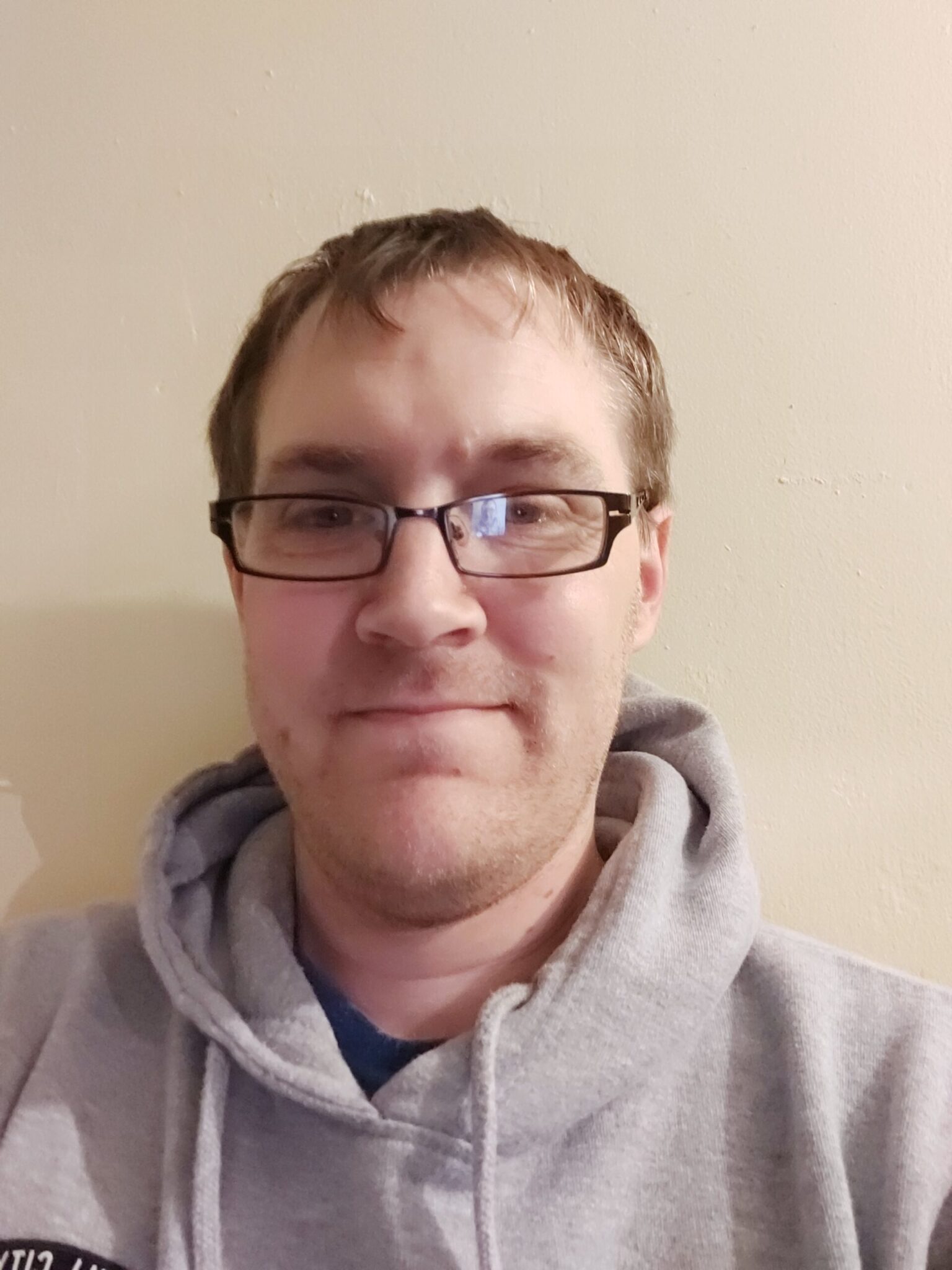
Embarking on the incredible journey of raising children with Down Syndrome is a unique and rewarding adventure, filled with love, joy, and discovery. In this blog post, we unveil a treasure trove of invaluable life hacks that not only simplify the daily challenges but also amplify the extraordinary moments of parenting. Join us as we navigate the terrain of raising remarkable kids with Down Syndrome, offering insights, practical tips, and heartwarming stories that will inspire and empower every parent on this extraordinary path. Let’s celebrate the exceptional journey of parenthood together, unlocking a world of possibilities and embracing the beauty that comes with raising these incredible individuals.